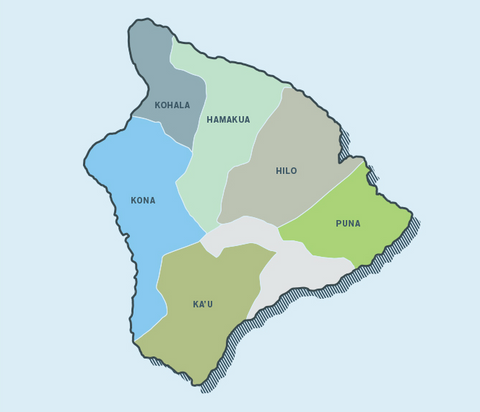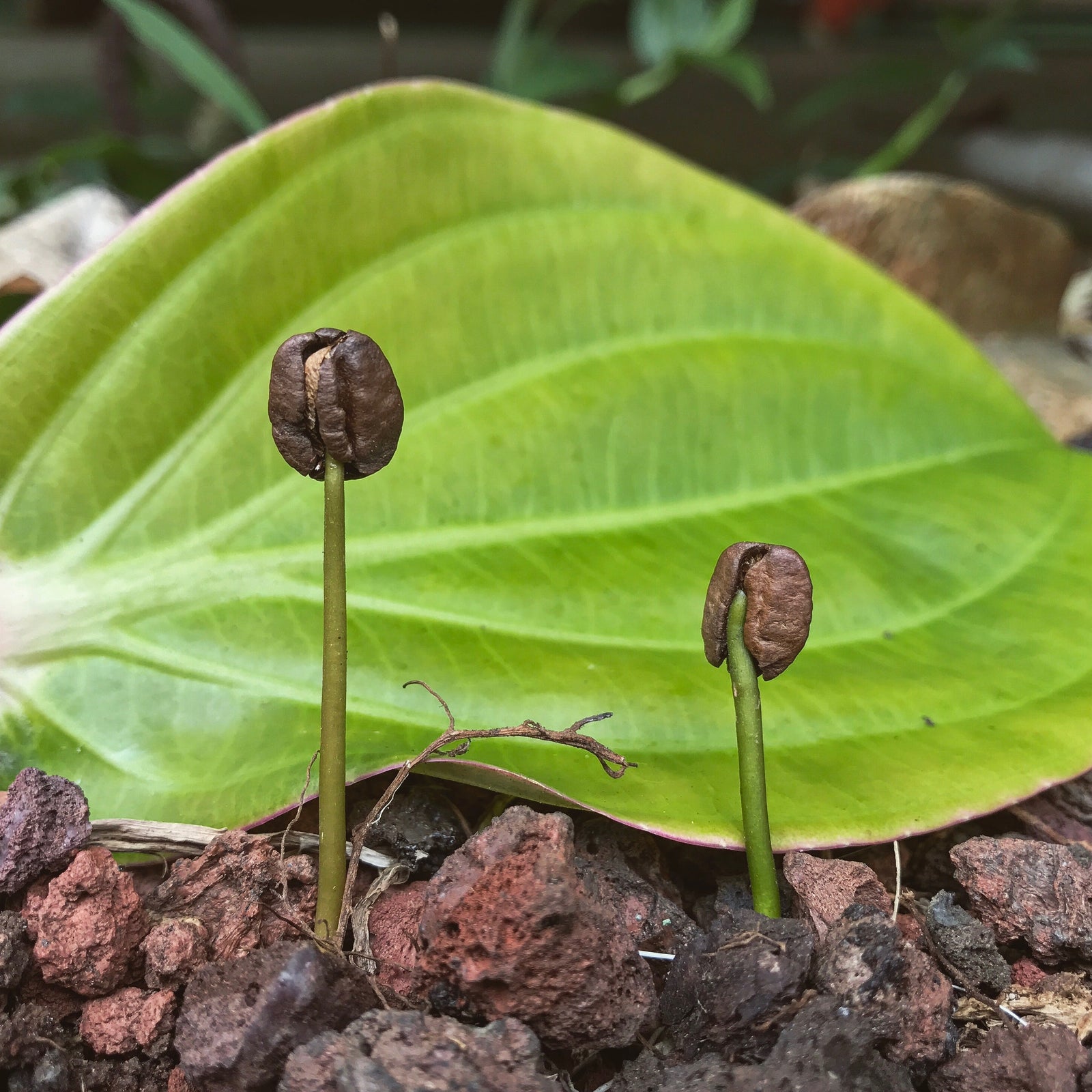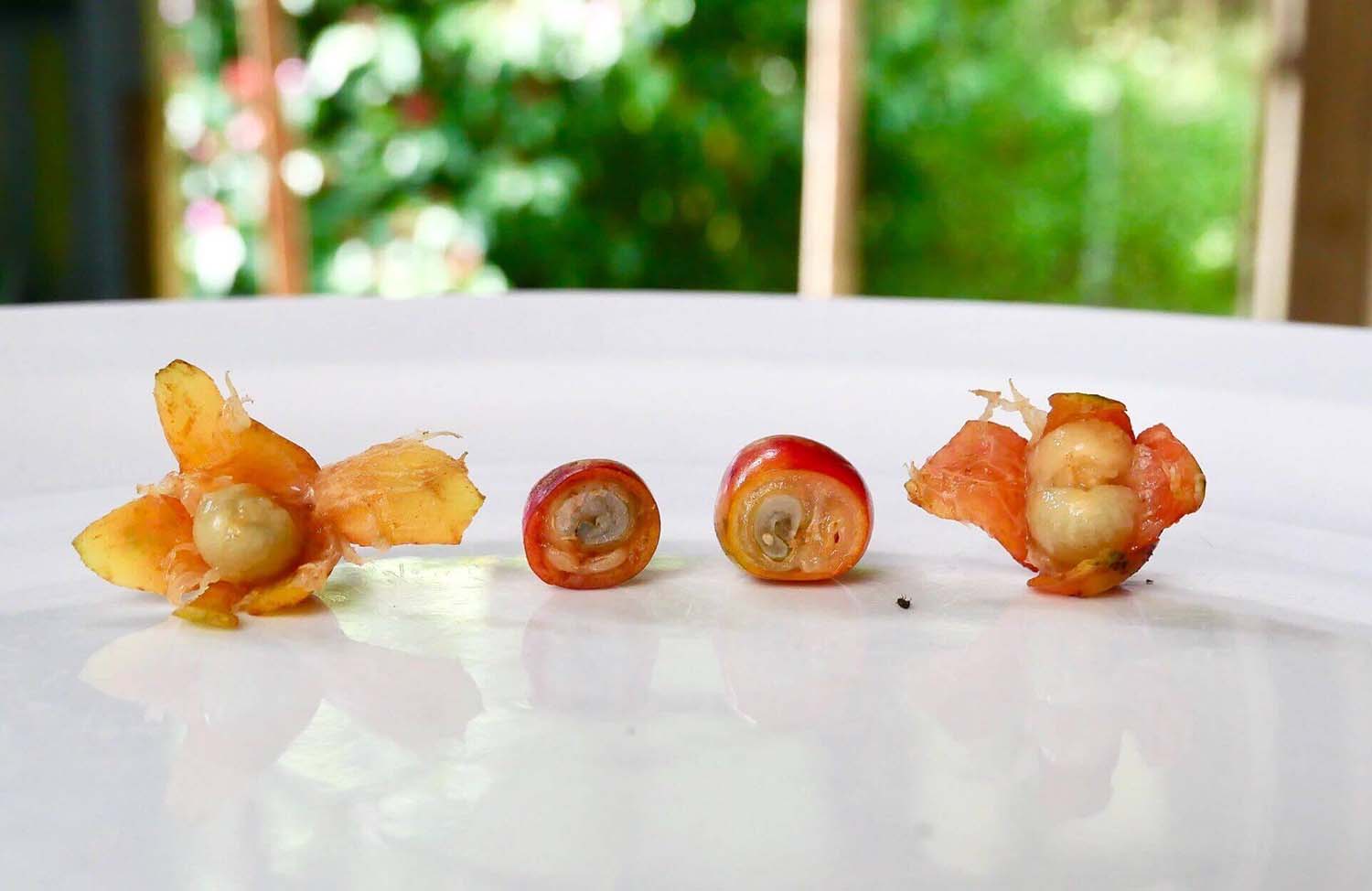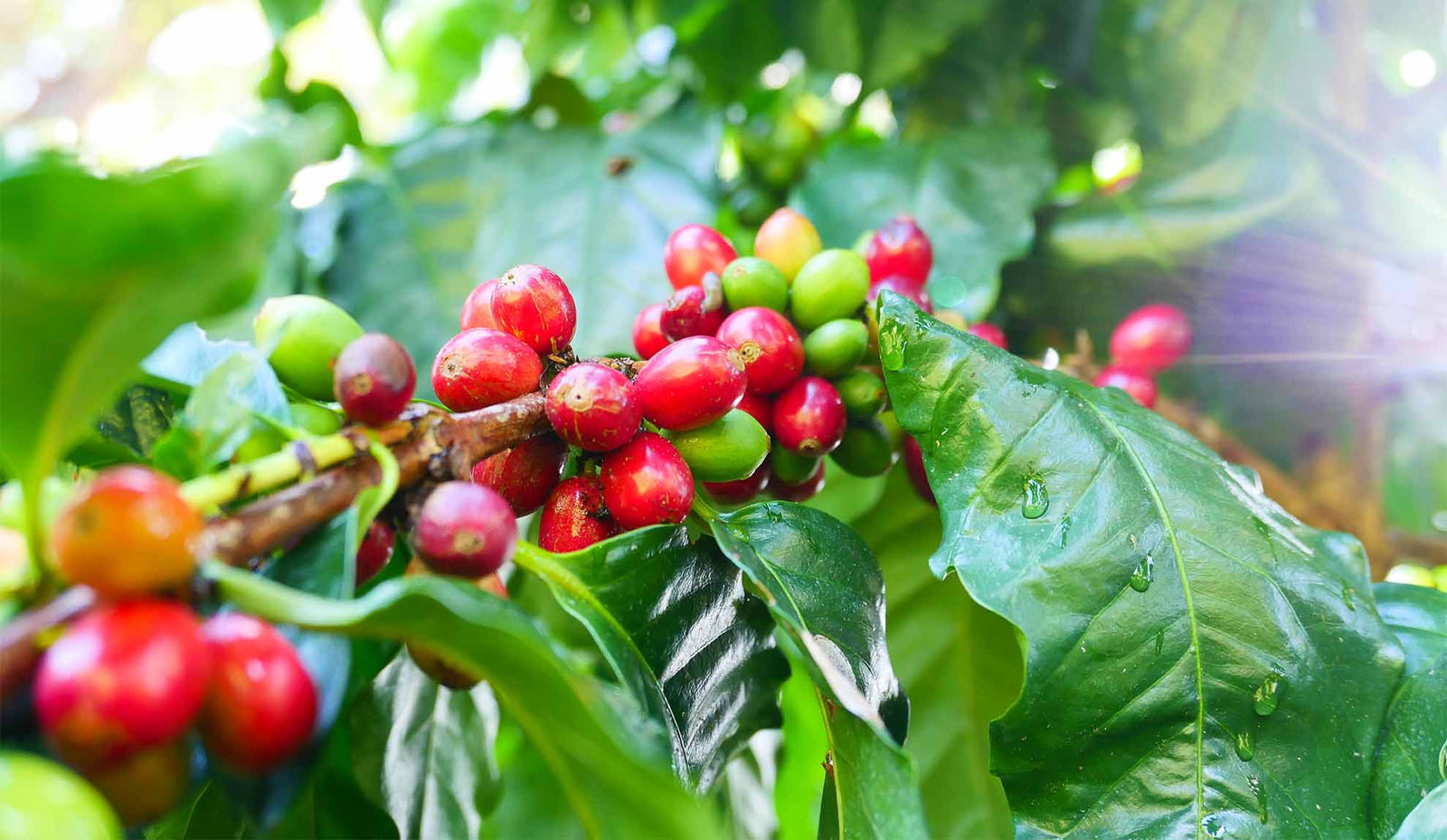Did we glue roasted Kona coffee beans to plant stems on April Fools Day, then tell Instagram that this is how Kona coffee grows out of the ground? Maaaaybe.
But in all seriousness, myths and rumors spread easily and the Kona coffee industry has been fraught with misrepresentations and counterfeiting scams since the 1990s. It's both coffee lovers and farmers who pay the price for these misunderstandings. So this article is to help those who seek to find answers

10 Tips Before You Buy Kona Coffee
Kona coffee is renowned for its rarity, quality, and chocolate-like flavor profile, but finding truly top-quality, authentic Kona coffee is easier said than done.
Because of rarity and cost, the region has been a source of mislabeling, counterfeiting, rumors, and poor quality -- occasionally because well-intentioned coffee farmers just didn't realize producing and selling their coffee would be so damn hard.
So what should you know before vacationing in Hawaii or shopping for real Kona coffee online? Read on.
#1: There is no such thing as “Fair Trade Kona coffee” because it's grown in the USA
To be Fair Trade certified, coffee must have met minimum sustainability and labor standards throughout its journey from seed to cup.
Much of the coffee in the world isn't Fair Trade certified. As a result, coffee farmers around the world are often paid poorly for their crop without any capacity to improve their farm or living conditions.
However, this isn't the case for Kona coffee. Coffee producers in Kona earn an equitable living wage because it's US law. This means that Kona coffee doesn't just meet Fair Trade standards – it exceeds them.
#2: Kona counterfeiting still occurs on the mainland and beyond
Despite legislation being put in place to prevent it, counterfeiting does occur with Hawaiian coffee. For example, it's not uncommon that Ka'u coffee is mislabeled and falsely sold as Kona coffee for a much higher price.
To qualify as 100% Kona coffee, every single bean in a bag of coffee must be grown in Kona. Coffees labeled with terms like “Kona blend” or “10% Kona coffee” are not 100% authentic Kona beans.
Authenticity is a big issue for Kona coffee. This is why around 600 Kona coffee farms are currently engaged in a class-action lawsuit against distributors, wholesalers, and retailers who have been falsely selling mislabeled Kona coffee. This mislabeling harms authentic Kona farmers by driving down prices and tarnishing consumer perceptions.

#3: It can be hard to determine the authenticity of Kona coffee outside Hawaii
While there are strict labeling laws on Kona coffee in Hawaii, this isn't the case in the rest of the United States. Federal laws do not, unfortunately, protect the Kona coffee brand.
In Hawaii, at least 10% of the coffee must include Kona beans to use "Kona coffee" on the label, and other origins must be disclosed. Outside of Hawaii, misleading phrases such as “Kona Roast” and “Kona Style” can be used on a bag of coffee from another country.
If you're looking for truly authentic Kona coffee, pay close attention to where your coffee comes from and make sure that it was roasted by a reputable Hawaiian coffee company.
Furthermore, if you find roasted Kona coffee for less than $20/lb, you should be suspicious. Here's why:
Farmers sell unrefined, raw Kona coffee sells for $19 to $23/lb. Milled and refined Kona green coffee beans run around $25 to $35/lb. After each process, there's attrition or loss. That means if you start with 100lb of unrefined (parchment) Kona coffee, you'll end up with 60-65lb of roasted Kona coffee.
Working backwards, that means if you see 100% Kona coffee sold at $18/lb, the raw, unrefined parchment Kona coffee is $11.50 or less.
If it seems too good to be true, it probably is.
While we do carry a popular Kona blend coffee, it is a 100% Hawaiian Island coffee composed only of Big Island coffees from Kona, Ka'u and Hamakua.

#4: There are three main varieties of Kona coffee: Typica, Pache, and Caturra
The most common variety of Kona coffee is Typica, which was introduced to the Big Island in the 1800s from Guatemala.
Typica has long thrived in Kona thanks to the cool temperatures, adequate rainfall, plentiful shade, and the nutrients from the volcanic soil.
However, today, dozens of varieties are grown by Kona coffee farmers. While Typica is the most common, others (including Caturra and a Typica mutation called Pache) are becoming more prevalent.
If you want a traditional Kona coffee, look for Typica or Pache. For an exotic new twist on Kona coffee, look for Bourbon, Kona Geisha, or SL-28.

#5: Hawaii was one of the last origins to get coffee rust
Coffee leaf rust was first detected in Sri Lanka in the 19th century. Since then, it has swept the planet, affecting almost every coffee-producing country in the world.
Leaf rust is a fungus that thrives in warm, wet conditions. It weakens the coffee plant, discoloring leaves and coating them with a fine orange-brown dust. This will reduce the plant's yield and quality, and if left untreated, can destroy it entirely.
Until just a few years ago, Hawaii coffee farmers had been lucky. We were one of the only origins that wasn't affected by the fungus. However, rust was first spotted in Maui on wild coffee trees in 2020, and shortly after spread to coffee farms throughout Hawaii.
Rust will eventually cause Kona coffee prices to rise, meanwhile producers are looking for the most effective treatment protocols.
#6: Kona coffee is extremely rare
The “belt” where coffee can be grown in the Kona District is about two miles wide and thirty miles long. There are roughly 800 farms in this region, which average between five and ten acres in size.
To put that in perspective, there are single farms in Brazil that are larger than all of the coffee-growing land in Kona. Amazing, right? Furthermore, authentic Kona coffee is 100% hand-harvested and grown in a relatively small area – which is one of the reasons that it is more costly.

#7: Kona coffee has premium pricing, but for very important reasons
- It's 100% hand-picked.
- Everyone in the supply chain earns a living wage, making it fair and sustainable.
- There is a limited supply, which causes demand (and thus price) to increase.
- There is a small area of suitable farmland.
- The cost of production is high.
Due to the extensive labor and costs, we roast, process, and treat our coffees differently. For instance, our Kona coffee dark roast, 100% Kona Moon, is roasted carefully, and not too dark, so you can taste what makes Kona special. Our Kona medium roast coffee, 100% Kona Bloom, is lighter than most in Hawaii, so you can taste the inherent notes of peach and coffee blossom.
#8: All Kona coffee must be hand-picked
All Kona coffee is selectively hand-picked. This requires a lot of time and effort, and it's estimated that it accounts for some 40% of the cost of a bag of Kona coffee.
The cherries must be hand-picked for a number of reasons. Firstly, the terrain is too rocky and uneven for mechanical harvesting. It also helps to ensure maximum ripeness, which in turn improves the quality of each bag a farmer sells.
This method, while labor-intensive, is part of what makes Kona coffee such a high-quality product.

#9: Most Kona coffee farms are family-owned and run
The small, family-run coffee farms in Kona are usually between five and ten acres in size, with annual sales of less than $10,000.
Interestingly enough, this is largely because of events that happened over a century ago. When the coffee market crashed right at the end of the 19th century, farm owners leased small parcels of land in Kona to some of their workers to recover their losses.
Over time, this division of land remained the status quo, and led to the hundreds of smallholder farms that we see in the Kona District today.
#10: Where does the best Kona coffee come from?
The answer to this isn't quite that simple. The “best” Kona coffee changes each year and depends on the competition, reviewer, and variety. Kona Peaberry, Geisha, Mokka, and Typica have all ranked highly in the past.
However, the best Kona coffee usually have the same things in common. They will be family-grown by owners who have several years of deep technical coffee knowledge, properly stored away from light and moisture in hermetically-sealed bags, and very expensive.
When looking for Kona coffee to buy and brew at home, you should keep one golden rule in mind: if it's cheap, it's likely to be counterfeit or a blend.
Want more?
Our boutique 100% Kona coffees are roasted and milled on the Big Island, and delivered direct to your doorstep.
Read our Kona Coffee FAQ
Shop our fresh-roasted Kona coffees online





